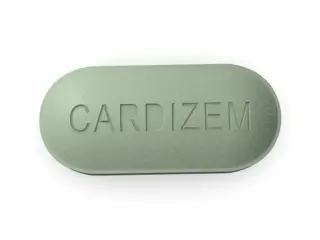| Package | Dosage | Price | Price per Dose | |
|---|---|---|---|---|
| Dosage: 30mg | ||||
| 360 pill | 30mg | $280.36 | $0.78 | |
| 270 pill | 30mg | $220.68 | $0.82 | |
| 180 pill | 30mg | $156.83 | $0.87 | |
| 120 pill | 30mg | $116.58 | $0.97 | |
| 90 pill | 30mg | $94.37 | $1.04 | |
| 60 pill | 30mg | $68.00 | $1.12 | |
| 30 pill | 30mg | $36.07 | $1.21 | |
| Dosage: 60mg | ||||
| 360 pill | 60mg | $384.46 | $1.07 | |
| 270 pill | 60mg | $292.85 | $1.08 | |
| 180 pill | 60mg | $197.08 | $1.10 | |
| 120 pill | 60mg | $134.62 | $1.12 | |
| 90 pill | 60mg | $106.86 | $1.18 | |
| 60 pill | 60mg | $73.55 | $1.24 | |
| 30 pill | 60mg | $40.24 | $1.32 | |
| Dosage: 90mg | ||||
| 360 pill | 90mg | $569.07 | $1.58 | |
| 180 pill | 90mg | $297.02 | $1.65 | |
| 120 pill | 90mg | $201.25 | $1.68 | |
| 90 pill | 90mg | $158.22 | $1.76 | |
| 60 pill | 90mg | $111.03 | $1.85 | |
| 30 pill | 90mg | $59.67 | $1.98 | |
| Dosage: 120mg | ||||
| 360 pill | 120mg | $630.14 | $1.75 | |
| 270 pill | 120mg | $483.01 | $1.79 | |
| 180 pill | 120mg | $330.33 | $1.83 | |
| 120 pill | 120mg | $230.39 | $1.92 | |
| 90 pill | 120mg | $181.81 | $2.01 | |
| 60 pill | 120mg | $129.07 | $2.15 | |
| 30 pill | 120mg | $80.49 | $2.68 | |
| Dosage: 180mg | ||||
| 270 pill | 180mg | $689.82 | $2.55 | |
| 180 pill | 180mg | $471.91 | $2.62 | |
| 120 pill | 180mg | $317.84 | $2.65 | |
| 90 pill | 180mg | $251.21 | $2.79 | |
| 60 pill | 180mg | $177.65 | $2.97 | |
| 30 pill | 180mg | $97.15 | $3.25 | |

Diltiazem Description
Introduction to Diltiazem
Diltiazem is a medication commonly used to treat various heart-related conditions. It belongs to the class of drugs known as calcium channel blockers. By affecting the flow of calcium ions into the cells of the heart and blood vessels, Diltiazem helps to relax the arteries, reduce blood pressure, and improve blood flow. This medication is often prescribed for patients suffering from angina, hypertension, and certain types of arrhythmias.
How Diltiazem Works
The primary function of Diltiazem is to prevent calcium from entering the cells of the heart and blood vessel walls. This action results in vasodilation, which lowers the resistance the heart has to pump against, thereby reducing blood pressure. Additionally, Diltiazem diminishes the heart’s workload by slowing down the heart rate and reducing the force of cardiac contractions. This combined effect makes it effective in preventing angina attacks and controlling abnormal heart rhythms.
Usage and Dosage
Diltiazem is typically available in tablet or capsule forms. The dosage varies depending on the condition being treated, the patient's response, and other individual factors. It is usually taken orally once or twice a day. Patients are advised to follow their healthcare provider's instructions carefully to avoid underdosing or overdosing. Consistency is key, so it should be taken at the same times each day to maintain steady medication levels in the blood.
Potential Benefits
Many patients experience significant relief from symptoms when taking Diltiazem. It effectively controls chest pain associated with angina by improving blood flow to the heart. It also helps to lower high blood pressure, contributing to a reduced risk of strokes, heart attacks, and kidney problems related to hypertension. For those with arrhythmias, Diltiazem can stabilize heart rhythms, leading to improved cardiac function and overall well-being.
Possible Side Effects
While Diltiazem is generally well-tolerated, some users may experience side effects. Common issues include swelling of the ankles or feet, dizziness, headache, or flushing. Some patients might experience gastrointestinal discomfort such as nausea or constipation. In rare cases, more serious side effects like irregular heartbeat, severe allergic reactions, or worsening heart function may occur. It is important to report any unusual symptoms to a healthcare professional promptly.
Precautions and Contraindications
Before starting Diltiazem, patients should inform their doctor about any existing health conditions, especially heart problems, low blood pressure, or liver issues. This medication may interact with other drugs, including beta-blockers, certain antifungals, or antibiotics, potentially enhancing side effects or reducing efficacy. Pregnant or breastfeeding women should consult their healthcare provider, as the safety of Diltiazem in these situations has not been fully established. Monitoring blood pressure and heart rate regularly is recommended during treatment.
Conclusion
Diltiazem is an effective medication for managing angina, hypertension, and arrhythmias. Its ability to relax blood vessels and slow heart rhythms provides substantial therapeutic benefits. However, like all medications, it carries potential risks and side effects. Proper medical supervision is essential to ensure safe and optimal use. Patients should adhere to prescribed dosages and report any adverse reactions for appropriate management. Diltiazem remains a valuable option in the arsenal of cardiovascular treatments for suitable candidates.
